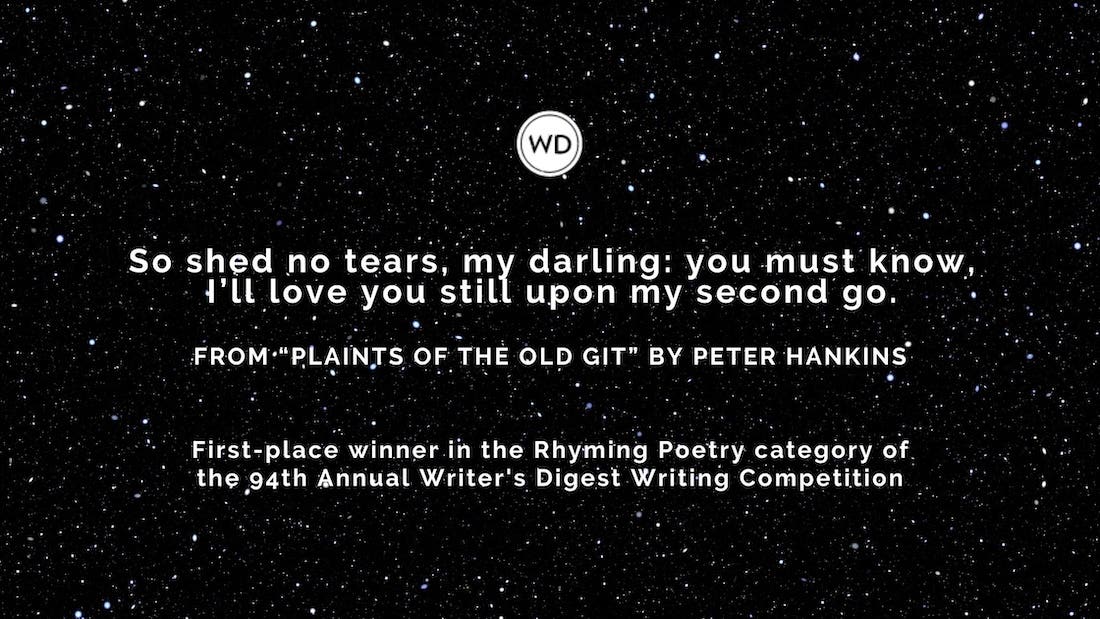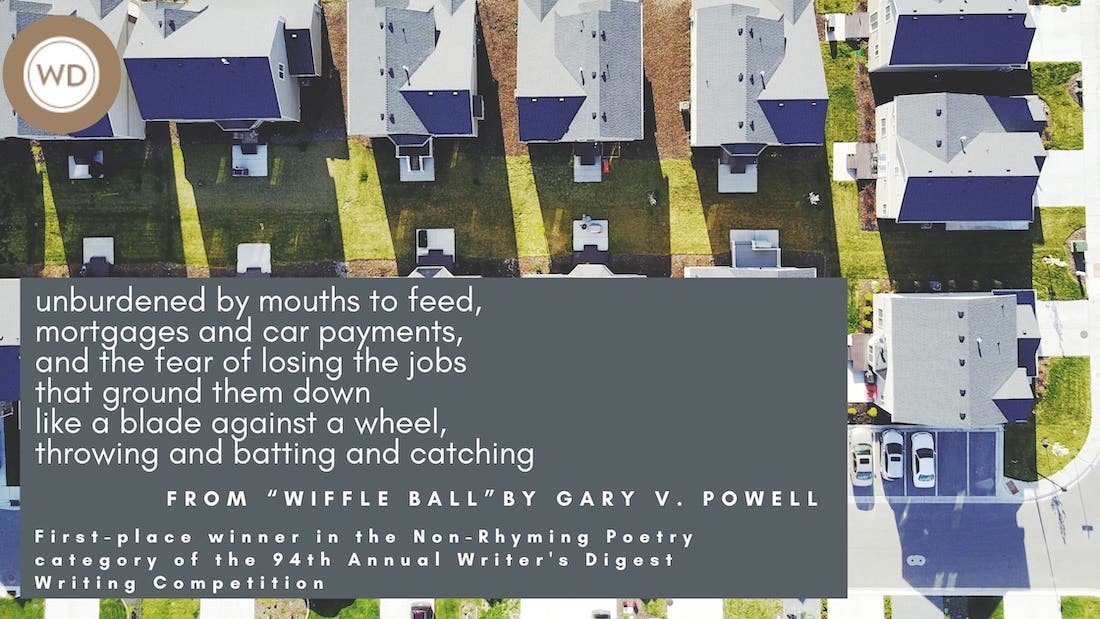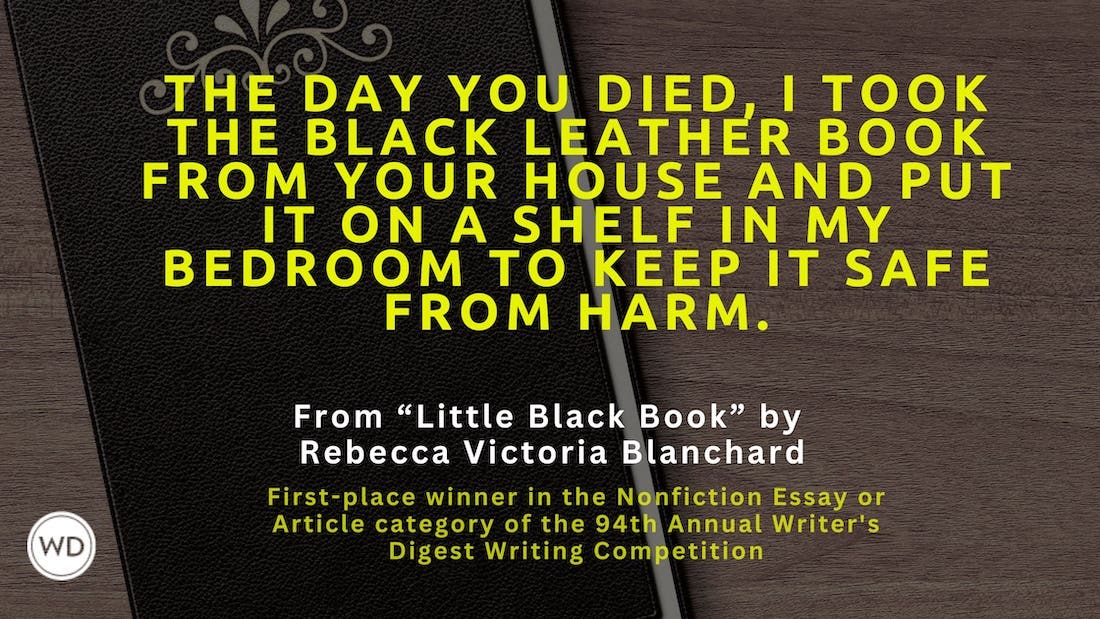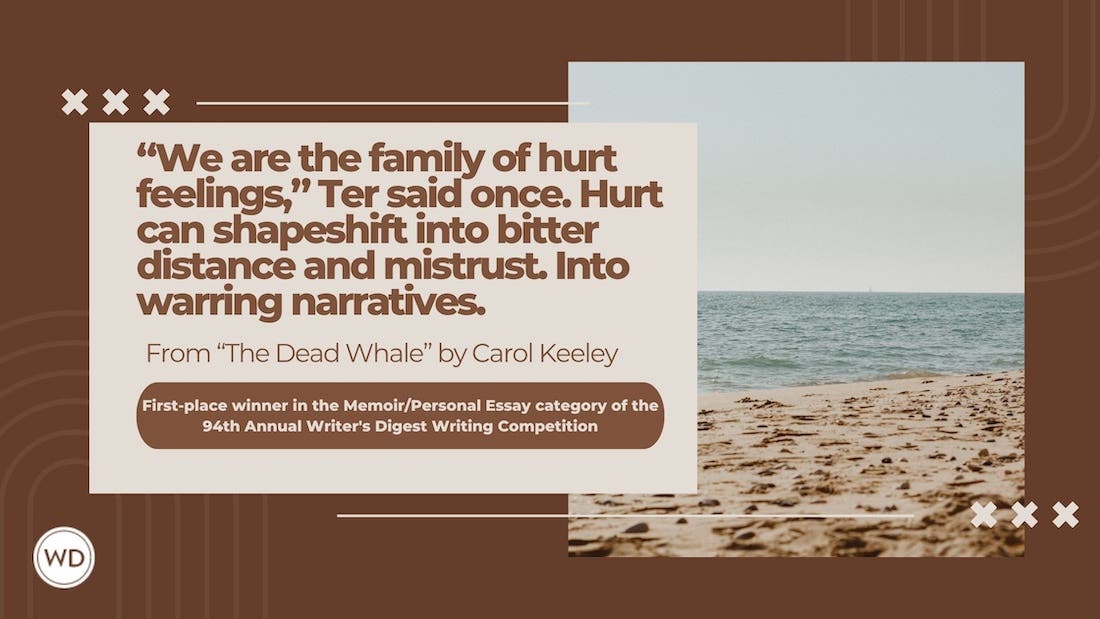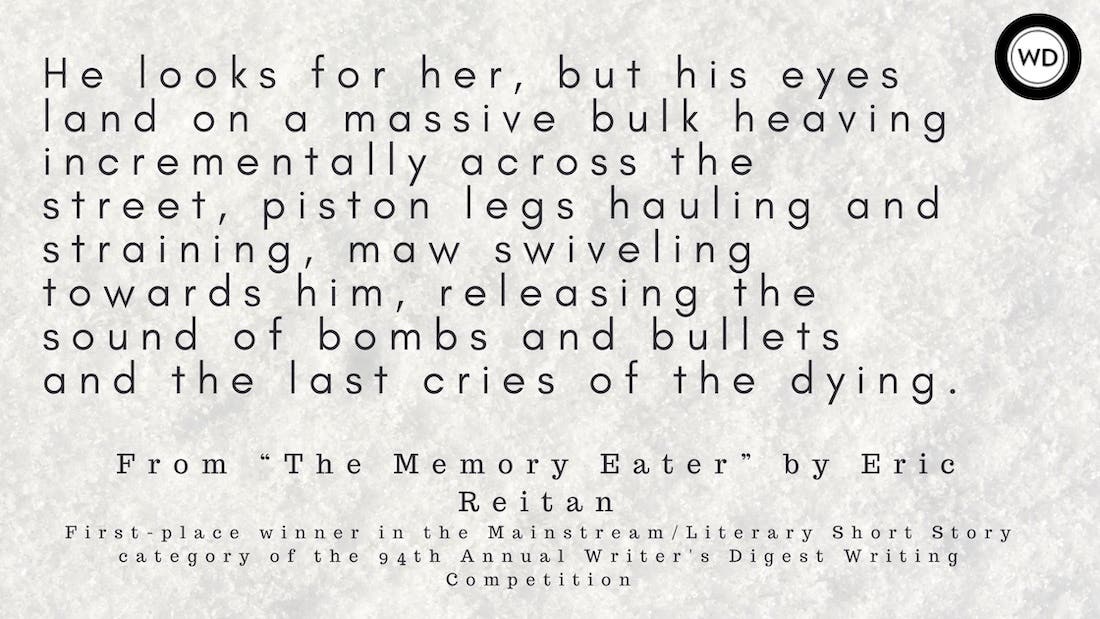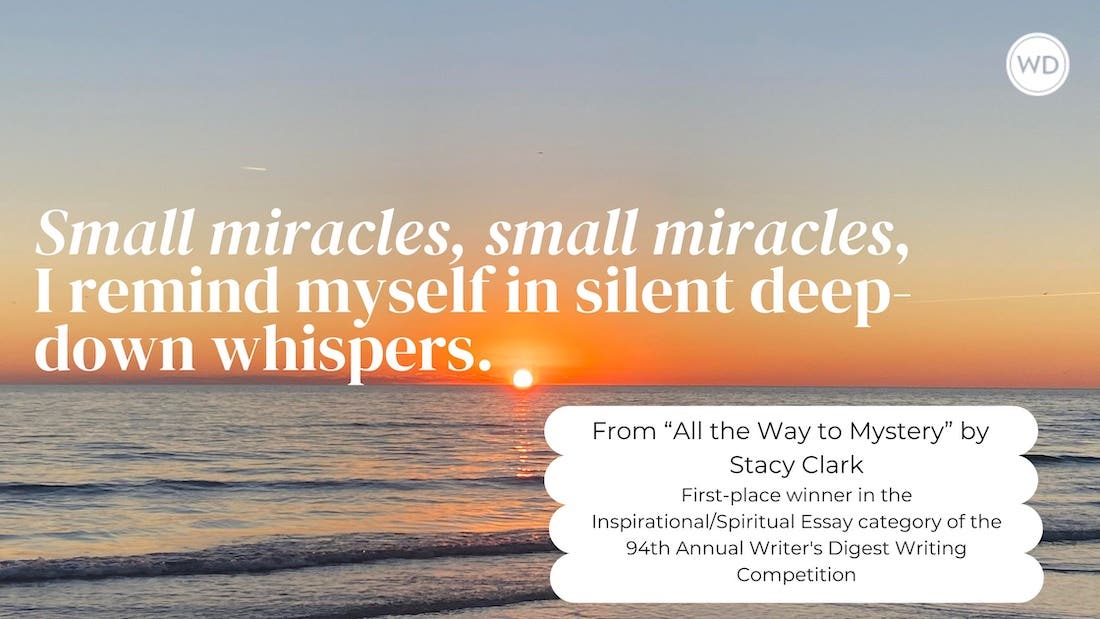Interview with 18th Annual Writer’s Digest Self-Published Books Award Winner Weldon Long
Weldon Long’s memoir, The Upside of Fear: How One Man Broke the Cycle of Prison, Poverty and Addiction, won the 18th Annual Writer’s Digest Self-Published Books Awards. In this bonus coverage, Long talks about his long path toward writing success. by Melissa Wuske
Please write a quick bio of yourself.
In a nutshell, I somehow transcended a 20-Year cycle of prison, poverty and addiction and created a life of wealth, happiness and contribution.
Within a few short years of being released from prison (for the third time), I grew one of Inc. Magazine’s Fastest Growing Private Companies in America, with over 20 Million Dollars in Sales in just 60 months. Today I spend the bulk of my time writing and speaking about how others can succeed in life and business, despite any adversity and challenge they may face.
Despite dropping out of high school in the ninth grade, I eventually went on to earn a BS and an MBA in Management... and yes, I went to jail... not Yale.
Who has inspired you—in your writing and otherwise?
The most influential writer in my life has been Stephen R. Covey who wrote The 7 Habits of Highly Effective People. I read that book in 1996, just after my father died. At the time I was a high-school drop out and a three-time loser, facing another seven years in prison. The lessons I learned in that book became the foundation of the amazing life that awaited me.
Covey also motivated me to write a book that would inspire others. That was the primary motivation behind The Upside of Fear. It wasn’t so much that I felt the need to tell my story, it was my belief that the book might help someone else.
Wayne Dyer inspired me to go to Maui and write a book because I read his books in a prison cell and Maui seemed like a much better deal. Covey was the most influential, but Dyer sends me to a whole other dimension. Napoleon Hill taught me that “thoughts are things”, and I learned to take “massive action” from Tony Robbins. There are a ton of really smart people out there for us to learn from.
Describe the processes writing this book.
I took a very methodical approach to writing the story. I figured I needed about 60,000 words for a book, so I went to Maui and wrote 2000 words a day for 30 days. I would start each day about 4:30 AM and wouldn’t get up until I finished my 2000 words. Some days I would get in the flow and be finished by 7:30 and other days I would be sitting there at noon with only a few words on the screen, but I wouldn’t get up (except for coffee!) until I had 2000 words written.
What is really crazy is that I didn’t even have an outline - I just sat down and started writing my story. I wasn’t sure where it was going, so I just let it take me where I needed to go. By the way, I wouldn’t recommend NOT having an outline. I am working on another book now, and I know exactly where the book is going. The first thing I wrote was the Table of Contents.
What are the challenges of writing a true story?
For me, the hardest part was writing the whole story. There were moments where I was tempted to skip some really embarrassing parts, but I knew I had to tell it all. Much of the feedback I have received about the book has been related to how “real” and “honest” the story feels. I did a lot of really stupid things in my life, and relating those things in all their humiliating detail was very difficult. Looking back, however, I am really glad I got it all out. I don’t think the book would have felt authentic otherwise.
What elements do you think make a successful memoir?
Obviously a great story is critical. Life is often stranger than fiction and an interesting story is an interesting story - especially when it’s true. I also think a GREAT memoir needs to be true. I know it’s a fine line, but I wanted my story to be true. In The Upside I deliberately included names and dates so the story could be verified. Of course, there are also court records in my case, but I think the more real the story, the more interesting. I don’t know about you, but I found A Million Little Pieces less powerful once I learned many of the facts were manufactured. It’s still a great book, but a lot less powerful for me.
Why did you decide to write about your experiences?
In Viktor Frankl’s book, Man’s Search for Meaning, I learned that when we find meaning in our suffering, the suffering becomes tolerable. My suffering in prison became less difficult once I realized I could use it to help others, and part of that was writing a book. The primary motivation behind the book was knowing my story could inspire others. I believe that when we reach a point in life where our pain and suffering become our gift, life gets a lot easier. Writing The Upside of Fear was a big part of making my suffering my gift.
What advice has had the biggest impact on your success in life and as an author?
My father once told me, “Do something, son. Even if it’s wrong, do SOMETHING!” That philosophy is all about getting things done. TAKE ACTION. START WRITING! Even if you screw it up... DO SOMETHING!
What's the one thing you can't live without in your writing life?
A determination to succeed in the face of any adversity. If we are looking for an excuse not to do something, we’ll usually find it.
What does a typical day look like for you?
Right now I am traveling a lot doing motivational speaking and sales training. My wife and I live at 8500 feet elevation in the Colorado Rockies, so when I am home we enjoy coffee in the mornings before I head out to “the shed” to write, read and meditate. I also have a speaking/training business to run, and I do that from home. We also have a place on Maui, which is paradise. It doesn’t matter what we are doing there... it’s all good.
Describe the process of publishing this book.
Once I wrote the manuscript I sent it to my editor, Bill Crawford, at Greenleaf. He encouraged me to go ahead and write an outline, notwithstanding the fact that the manuscript was done. I resisted, but eventually did as I was told and that turned out to be a great thing. I realized there were holes in the narrative.
Bill really helped me fill in the gaps and encouraged me to develop some stories in more detail. It was Bill’s idea to use excerpts from the letters I written to my son from prison. This turned out to be one of the most poignant parts of the story.
From there, Greenleaf did a great job managing the process. I thought they were tremendous. Sheila Parr did a fantastic job with designing the cover. If you really study the cover you’ll notice that it’s not quite clear whether the man is in prison looking out, or out of prison looking back. I thought that was really intriguing.
Why did you choose self-publishing?
I wanted to be in control of my own publishing destiny. I had no idea whether or not I could get an agent or a publisher (I still have neither), and I decided to spend the time writing instead of submitting letters to agents who didn’t want to be bothered.
What are the biggest challenges you’ve faced self-publishing?
Being taken seriously as a writer. Self publishing is gaining credibility, but when people think “self published” they typically think that if your book was really good, a “real” publisher would have published it.
What are the most important benefits of self-publishing?
It guarantees that you’ll get published and have a chance to share your work with the world. If your book is good, it should eventually get noticed.
What surprised you about the process?
How awesome it felt to have the book in my hands. It was a dream come true. It’s also been pretty amazing how some folks have responded to the book. I recently got a letter from a guy who was forty years old and The Upside was the first book he had ever read. The best part was that he enjoyed the book so much that he was going to the library to get another book to read. That was pretty cool.
What are the biggest misconceptions about self-publishing?
That only vane, self-indulgent books are self-published. The self-publishing industry is gaining strength and credible work is getting to the shelves as a result.
What’s your advise to other self-publishing authors?
Take action. Do it. Start writing.
What are the keys that have made your book a success?
Honesty, a good story and a great editor.
What's the worst mistake that self-publishing authors can make?
Thinking that a “real” publisher will make you rich and famous. Whether you self-publish or someone publishes you, you’ve got to work to get noticed. I just signed a deal with Random House Korea for the foreign rights to The Upside of Fear. That would never have happened if I had not first self-published. The biggest mistake you can make is expecting others to make your dream happen. Now I just have to learn how to speak Korean.
How did you decide who to go after for blurbs, and how did you get them to agree to blurb your book?
That’s a pretty amazing story. Because The 7 Habits of Highly Effective People played a such huge role in my transformation, I wanted nothing more than to have Dr. Covey read and endorse the book, but that was easier said than done. We tried for several months to reach him, but were unsuccessful.
A few months later, just days from going to press with the final hardcover, I was speaking to a group of business leaders in Colorado Springs. Following my keynote I was approached by a gentlemen who had been sitting in the front row. He introduced himself and told me that his daughter was Dr. Covey’s personal assistant. After I picked my jaw up off the ground we made arrangements to get an ARC to Dr. Covey, and a month later I had the chance to meet him. A week after that Dr. Covey agreed to endorse the book. He endorsed the book on June 10, 2009, which was 13 years to the day my father died, and I had made the decision to change the course of my destiny. It was truly an incredible series of events, but it just goes to show you never know what the universe has in store for you.
The Tony Robbins endorsement came after I struck up a conversation with him on Twitter. He made the comment about my story in a Tweet, and I asked him (via Twitter) if I could use it. He said it was fine and that was that.
Both men were amazingly generous with their words.
If you were to self-publish again, what is one thing you’d do differently?
Nothing. The whole process was a blast and I loved every minute of it. This award is another step in the journey and more confirmation that my life is on the right path. This book is the product of a lot of people who helped out. Everyone at Greenleaf was awesome, and if someone has a book in them and wants a product that will rival the “real” publishers, I highly recommend them. It wasn’t cheap, but excellent quality rarely is.
If you were to self-publish again, what is one thing you’d do the same?
Always remember that “if it is to be... it’s up to me.” I approached this project knowing that it would be up to me to find ways to promote the book wherever and whenever I could. There are no free lunches in this business (or any other). If you want it, step up to the plate, swing for the fences and be ready to work your tail off.




